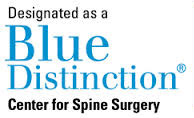Anti Inflammatory Drugs for Back Pain
In this article we’ll discuss the use of anti inflammatory drugs for back pain. More specifically, we’ll review a common form of these drugs, NSAIDs, and how they’re used to treat back pain.
 What are NSAIDs?
What are NSAIDs?
Non-steriodal anti inflammatory drugs (NSAIDs) are designed to block specific enzymes in the body that, among other things, promote inflammation1. While inflammation can be an important healing function in the body, it can also cause pain.
The first portion of the name (non-steroidal) is used to differentiate these drugs from steroids. While steroids can be used to treat inflammation (among other things) they can also have severe side effects. Non-steroidal anti inflammatory drugs, on the other hand, can often provide similar relief without many of the side effects of steroids2.
As an alternative to oral medications, there are also topical anti-inflammatory creams available which can reduce the risk of some side effects.
What are NSAID Drug Names?
NSAIDs are a family of drugs available from a variety of manufacturers. NSAID is a broad term and these drugs can be broken down into different groups, depending on the exact enzyme they target in the body. Some of the more common groups (and some brand names they are manufactured under) are listed below.
- Ibuprofen (ie: Advil, Motrin)
- Naproxen (ie: Aleve, Midol)
NSAIDs can also be purchased in over the counter or prescription strengths.
When NSAIDs Shouldn’t Be Used
Before we talk about the use of anti inflammatory drugs and back pain we should first review who shouldn’t be using NSAIDs. As with all drugs, NSAIDs come with a risk for certain side effects. Some of the most common side effects1 associated with NSAIDs are:
- nausea
- vomiting
- diarrhea
- constipation
- decreased appetite
- rash
- dizziness
- headache
- drowsiness
In addition, NSAIDs can result in issues associated with:
- kidney
- liver
- ulcers
- excessive bleeding after an injury or surgery
As a result of the possible side effects listed above, people with the following conditions should avoid using these drugs3:
- irritable bowel syndrome (IBS)
- history of gastrointestinal (GI) issues
- ulcers
- kidney disease
- hypertension
- Crohn’s disease or ulcerative colitis
- coronary artery disease
- congestive heart failure
- history of heart attack or stroke
- those in their 3rd trimester of pregnancy
It’s always best to check with your doctor prior to starting any new drug regimen. This is also true for anti inflammatory drugs for back pain.
Best Medicine for Back Pain
Back pain is one of the most common types of pain suffered by Americans. But, back pain can be caused by many different things. As a result, there’s no one best medicine for back pain. To understand the best medicine for your back pain you must first understand the source of your pain. (If you are experiencing chronic back pain and haven’t discussed it with your doctor, now may be the time to do so.)
That being said, a doctor’s first recommendation will often be non-steroidal anti inflammatory drugs for back pain4. According to a study by the Institute for Research in Extramural Medicine:
“NSAIDs are effective for short-term symptomatic relief in patients with acute low back pain.”
Anti Inflammatory Drugs for Back Pain
Many individuals can benefit from taking anti inflammatory drugs for back pain. Depending on your condition, a doctor may recommend anti inflammatory drugs alongside physical therapy or exercise as a treatment plan.
Specifically, those suffering from the following conditions may feel a relief of symptoms through the use of NSAIDs.
- ankylosing spondylitis
- rheumatoid arthritis
- degenerative disc disease
- herniated disc
- radiculopathy
- spondylolisthesis
- stenosis
- back pain resulting from a sports injury
The anti inflammatory effects of NSAIDs can often be effective in reducing the pain experienced by acute back pain sufferers.
